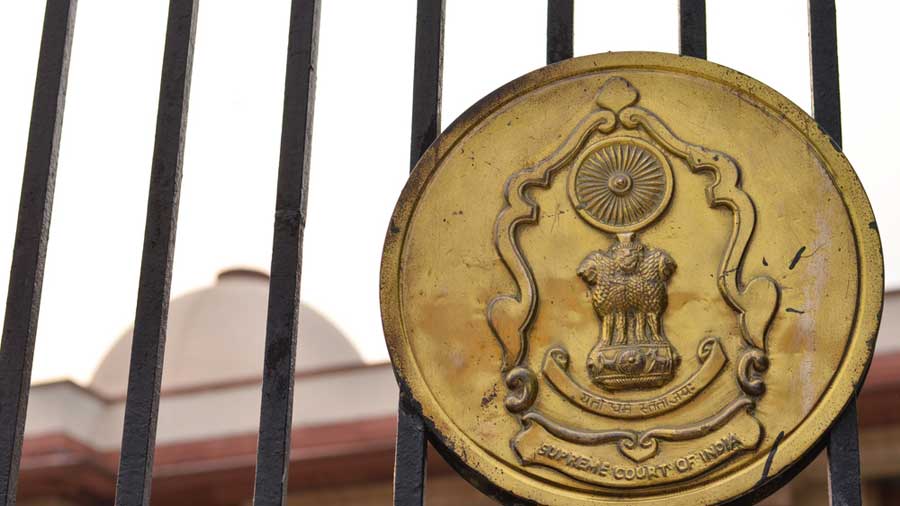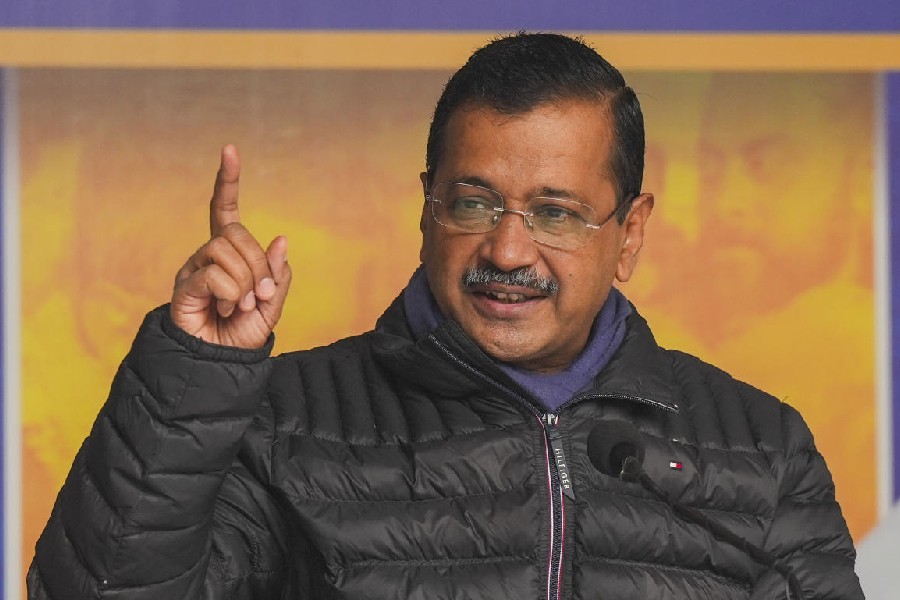The Centre has told the Supreme Court the question of treating Hindus, Parsis and Jews as minorities is “sensitive in nature” and “will have far-reaching implications”, because of which
additional time is needed to elicit the views of 19 states and Union Territories that have not expressed their opinions.
The Union ministry of minority affairs informed the court that 14 other states and Union Territories have come out with their views on the matter. The ministry’s affidavit does not disclose the views of these states and Union Territories, which include Bengal and the north-eastern states.
The ministry has filed the affidavit in response to the apex court’s notice on August 28, 2020, to the ministries of home, law and justice and minority welfare on a petition filed by advocate Ashwini Kumar Upadhyay seeking the declaration of Hindus as minorities in nine states to enable them to run and manage their own educational institutions like Muslims, Christians and other minorities do under Articles 29 and 30 of the Constitution.
Besides Upadhyay, several other individuals have joined the plea challenging the validity of Section 2 of the National Commission for Minority Educational Institutions Act, 2004, “for not only giving unbridled power to the Centre but also being manifestly arbitrary, irrational and offending Articles 14 (equality), 15, (non-discrimination), 21 (life and liberty), 29 and 30 of the Constitution”. This has affected Hindus in the nine states where they are said to be in minority, the petition has claimed.
Upadhyay has contended othat the Act, which came into force on January 6, 2005, arbitrarily empowered the Centre to notify five communities — Muslims, Christians, Sikhs, Buddhists and Parsis — as minorities at the national level.
Md Nadeem, undersecretary in the ministry of minority affairs, has stated in an affidavit that the Centre had held consultative meetings with all states and Union Territories and also with the Union ministries of home affairs, the department of legal affairs under the law and justice ministry, the department of higher education under the ministry of education, the National Commission for Minorities and the National Commission for Minority Educational Institutions.
Some of the states and Union Territories have sought additional time for wider consultations with all stakeholders before they form an opinion.
The affidavit mentions that the states and Union Territories had been requested that in view of the urgency of the matter, they should expeditiously undertake the exercise and finalise and convey their views to the Union ministry of minority affairs at the earliest.
According to the affidavit, 14 states — Punjab, Odisha, Uttarakhand, Himachal Pradesh, Gujarat, Goa, Uttar Pradesh, Tamil Nadu, Bengal, Nagaland, Mizoram, Meghalaya, Manipur and Tripura — and three Union Territories — Ladakh, Dadra and Nagar Haveli and Daman and Diu and Chandigarh — have furnished their opinions.
“That since the comments/ views of the remaining 19 state governments/UTs in the matter have not been received as on date, a reminder was sent to these states requesting them to furnish their comments/ views at the earliest so that the considered comments/ views can be placed before this Hon’ble Court,” the affidavit stated.
“In view of the position stated above, it is humbly submitted that since the matter is sensitive in nature and will have far-reaching implications, this Hon’ble Court may kindly consider allowing more time to enable the state governments/ Union Territories and stakeholders with whom the consultative meetings have already been held, to finalise their considered views in the matter,” it added.
The petitioners before the top court have contended that Hindus make up 1 per cent of the population of Ladakh, 2.75 per cent of Mizoram, 2.77 per cent of Lakshadweep, 4 per cent of Kashmir, 8.74 per cent of Nagaland, 11.52 per cent of Meghalaya, 29 per cent of Arunachal Pradesh, 38.49 per cent of Punjab and 41.29 per cent of Manipur, but the Centre has not declared them as a minority. As a result, Hindus are not protected under Articles 29 and 30 and cannot establish and administer educational institutions of their choice, the petitioners have complained.
They have pointed out that while followers of Judaism, Bahaism and Hinduism
are being deprived of their basic right to establish and administer educational institutions, Muslims can do so in Lakshadweep, where they make up 96.58 per cent of the population, Kashmir (96 per cent) Ladakh (44 per cent), Assam (34.20 per cent), Bengal (27.5 per cent), Kerala (26.60 per cent), Uttar Pradesh (19.30 per cent) and Bihar (18 per cent).
Christians can also establish and administer educational institutions in Nagaland, where they constitute 88.10 per cent of the population, Mizoram (87.16 per cent) and Meghalaya (74.59 per cent) and other states with significant numbers, such as Arunachal Pradesh, Goa, Kerala, Manipur, Tamil Nadu and Bengal. Sikhs can do so in Punjab, Delhi, Chandigarh and Haryana, and Buddhists in Ladakh.











